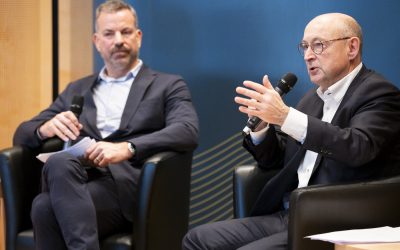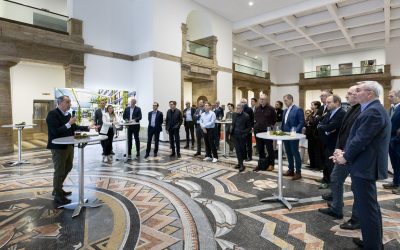"Without administrative reform
we go to our knees"
One year of black-red in Berlin - three Berlin editors-in-chief take stock
Text: Sebastian Thomas | Head of Communications and Marketing
The bar had been set high. The black-red state government had promised nothing less than a "new departure for the city" and presented itself as a "coalition of renewal". Now, one year after taking office, we at the VBKI have - following a certain tradition - taken stock together with three distinguished Berlin capital city journalists. Where has progress been made, where is the black-red alliance falling short of expectations?
The moderator of the evening, our long-standing member of the Executive Committee Dr. Kay Lindemann, first asked for a general assessment of the Senate's performance to date. Dr. Helene Bubrowski, former FAZ journalist and now part of the editorial team at Berlin publishing house Table Media, credited the two-party alliance led by Governing Mayor Kai Wegner and Senator for Economic Affairs Franziska Giffey with ensuring calm. From the perspective of the federal parties, the Berlin state associations - for example in the wake of Berlin specialties such as the expropriation debate - had enjoyed a reputation as "dirty children" for years. In the meantime, the relationship has normalized and Berlin's representation in the Bundesrat is no longer perceived as an "outlier".
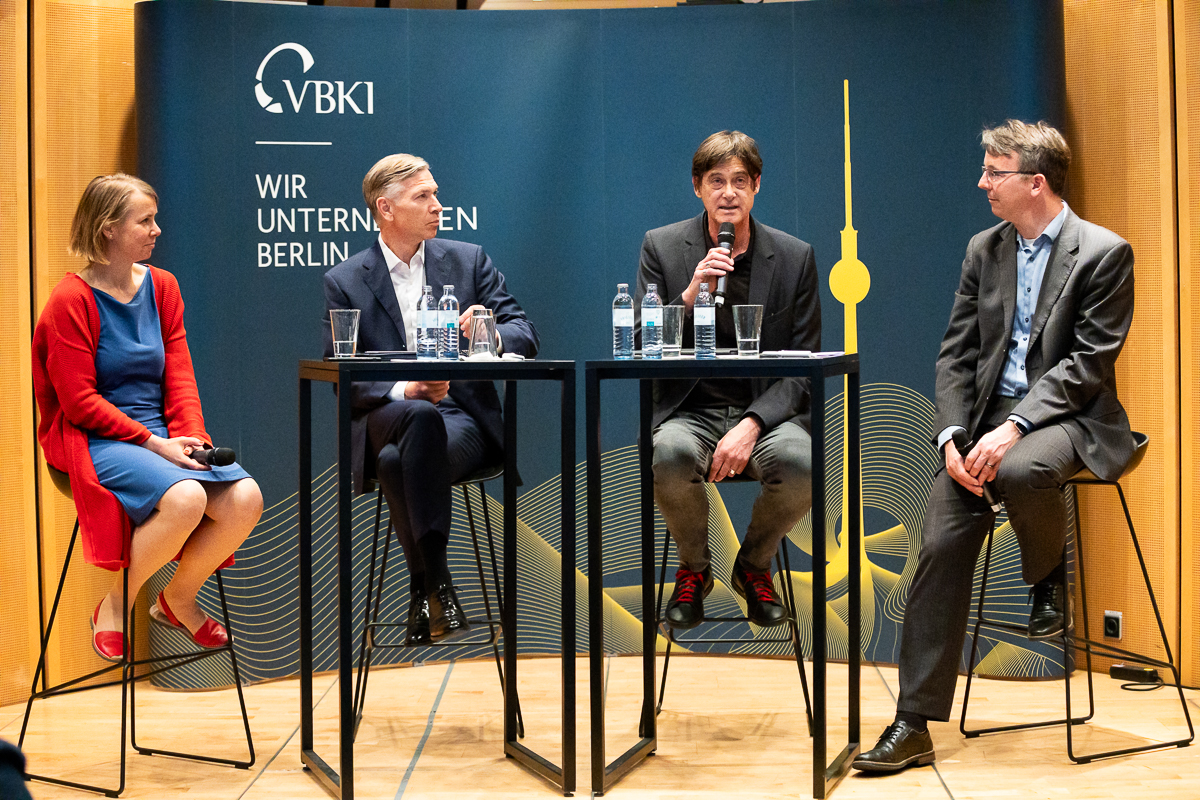
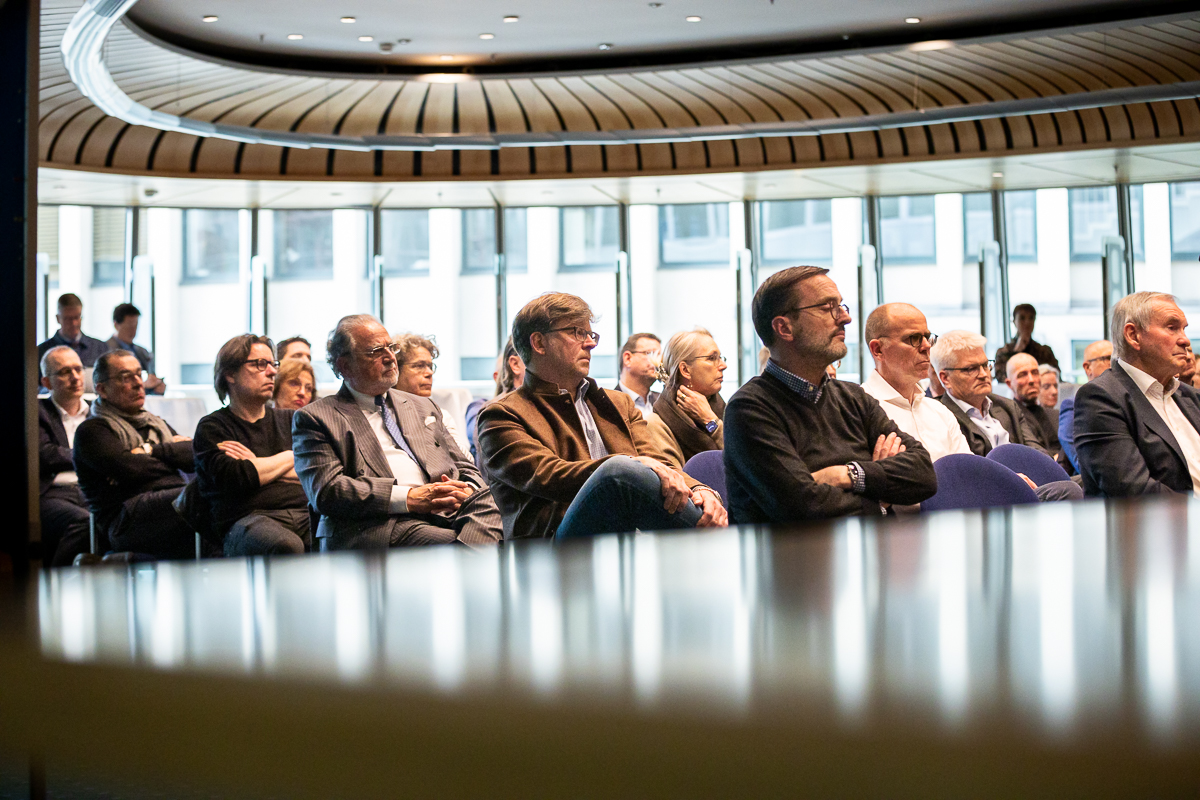
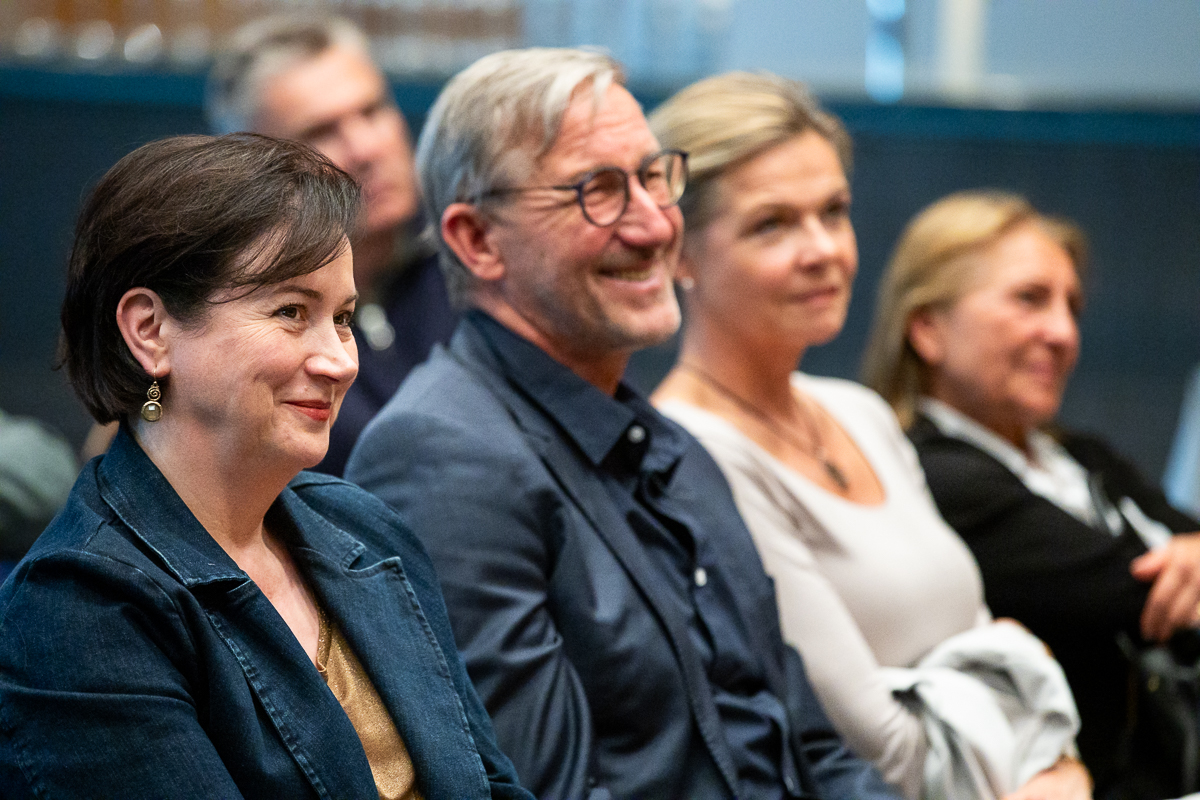
Lorenz Maroldt gives the actors involved passable marks for attitude, but sees little progress in substance. According to the long-standing editor-in-chief of the Tagesspiegel, the ruling coalition has mainly perfected façade building: "Little is happening behind the scenes". Peter Schink, who has been at the helm of the Morgenpost editorial team since the beginning of the year, also sees a certain discrepancy between the big promises made when taking office and the plans implemented so far - however, the mills in Berlin traditionally grind slowly and a year is not much time in politics. The bottom line is that Kai Wegner embodies the coalition's claim to reconcile and unite urban society quite well.
When it came to personnel, the sudden transformation of the governing mayor was the main topic of discussion. "The change that Kai Wegner has undergone is rapid," said the head of the Tagesspiegel, for example. Having previously had a clearly conservative "law-and-order" profile, Kai Wegner is now demonstratively open to issues that were previously occupied by the progressive spectrum. Will this image diversification work to his advantage in the long term? Lorenz Maroldt is skeptical and sees the danger of scaring off conservative voters rather than winning over more liberal ones.
Oh yes, the relationship between the Governor and the Senator for Education, Katharina Günther-Wünsch, could not be left out when looking back. Particularly in the months around the turn of the year, the romance was the talk of the town and was closely followed by the media. All three panelists made it clear why the topic was journalistically relevant. It was less about serving the public's interest in gossip news than about fulfilling journalistic due diligence. In the words of Lorenz Maroldt: "We are interested in whether Kai Wegner is telling the truth."
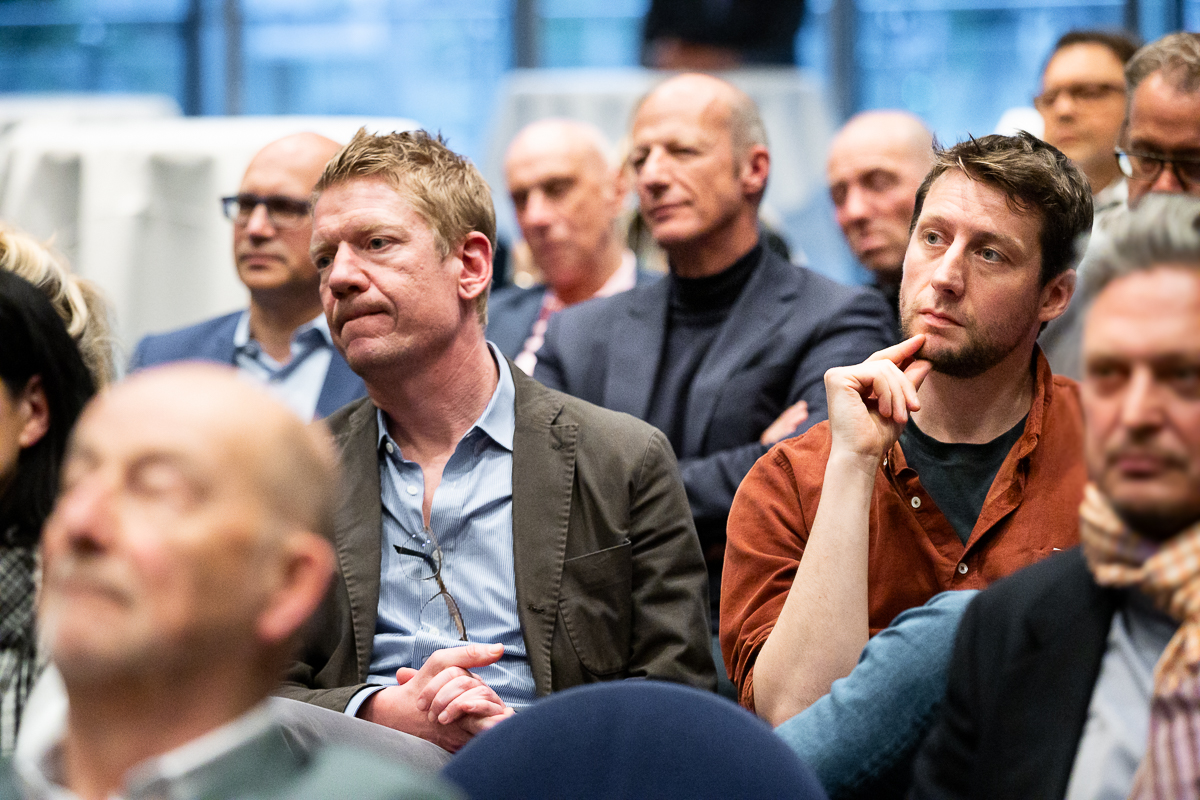
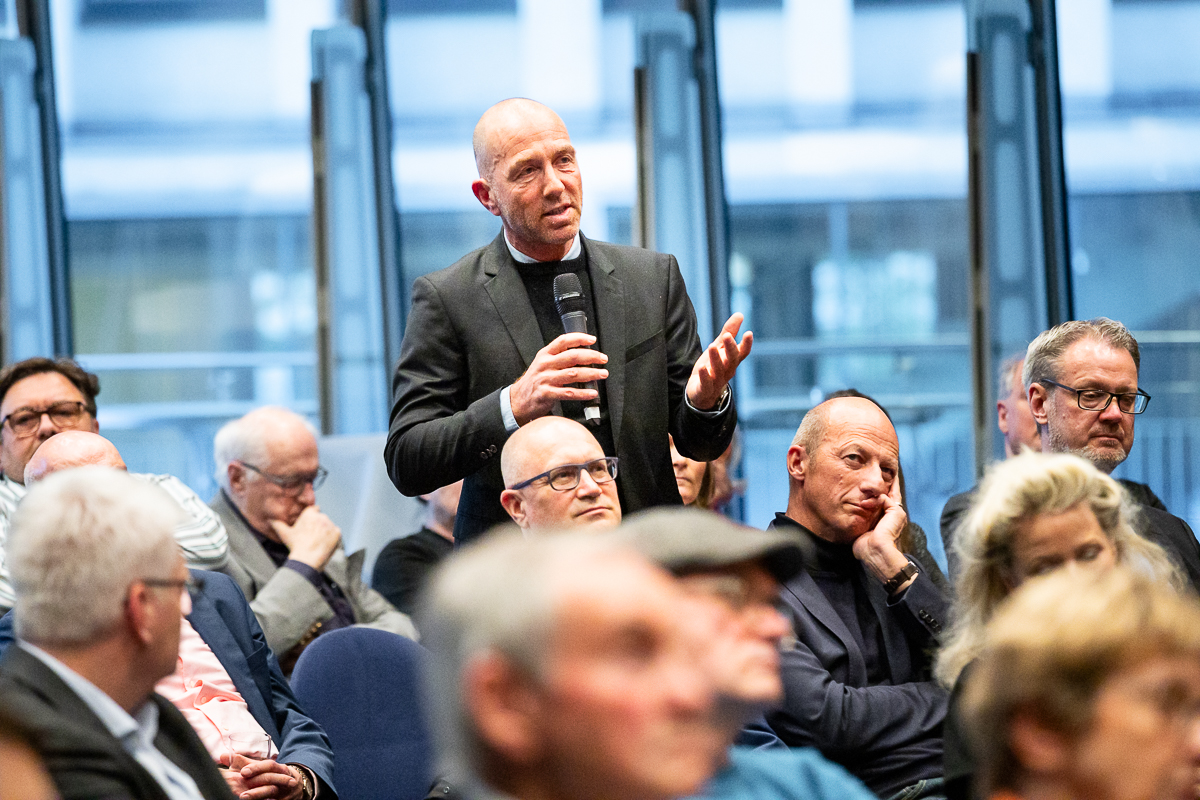
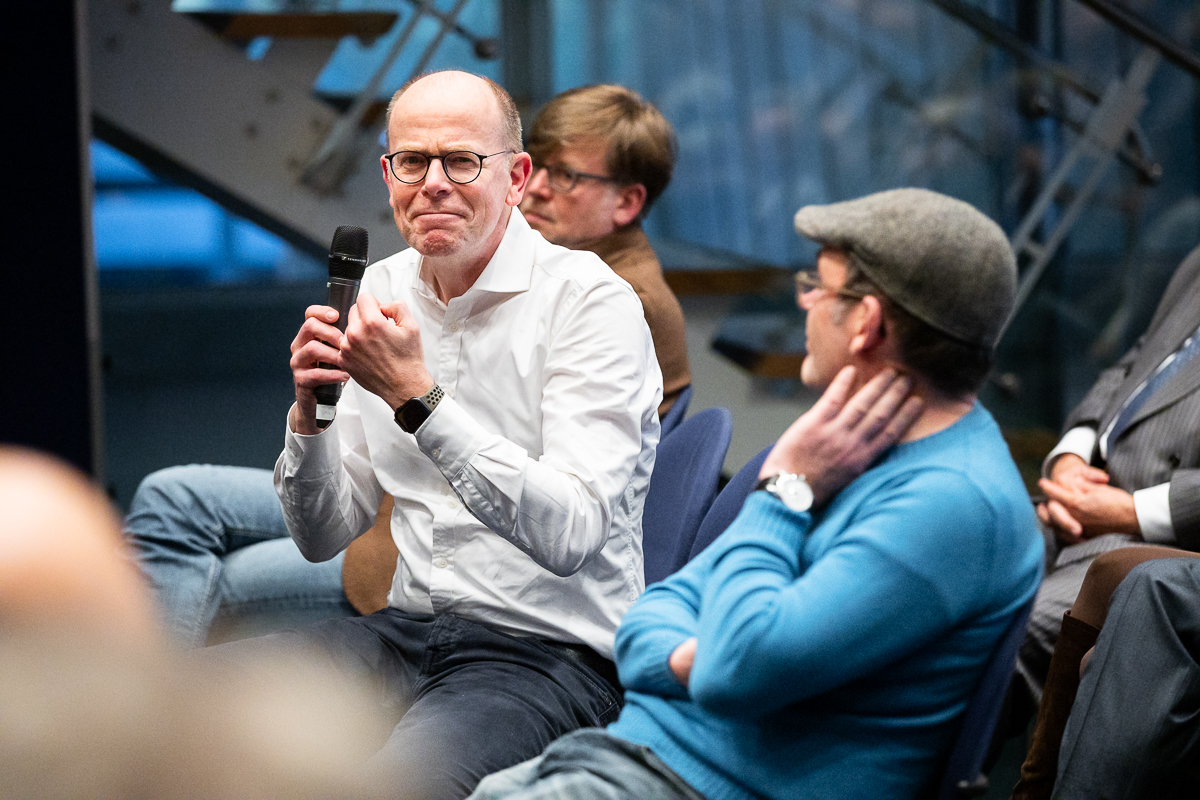
The moderator then asked the panel for their views on three topics that are particularly popular in Berlin: Housing, mobility and administrative reform. "Housing is a total loser issue," said Peter Schink, for example. According to the head of the Morgenpost newspaper, the Senate would do well to abandon its long-held and cherished expectations in order to do everything it can to speed up new construction on the basis of a realistic assessment of the current situation. The city continues to grow - and with it the pressure on housing costs. 18 euros per square meter is already the norm in the inner districts - and the trend is still rising. According to Lorenz Maroldt, the "Faster Construction Act" recently presented by Building Senator Christian Gaebler is an overdue measure, especially as the group of people blocking construction are strong. The Tagesspiegel journalist was particularly annoyed by the mistakes of the past: "From today's perspective, the Sarrazynism of the noughties can only be explained by total blindness." Overall, Maroldt sees the problem on the housing market less in the high rents than in the lagging wage development. He considers the renewed discussion about building on the edge of Tempelhofer Feld to be a sham debate. The key challenges in housing construction in Berlin are less to do with the location than with the financing.
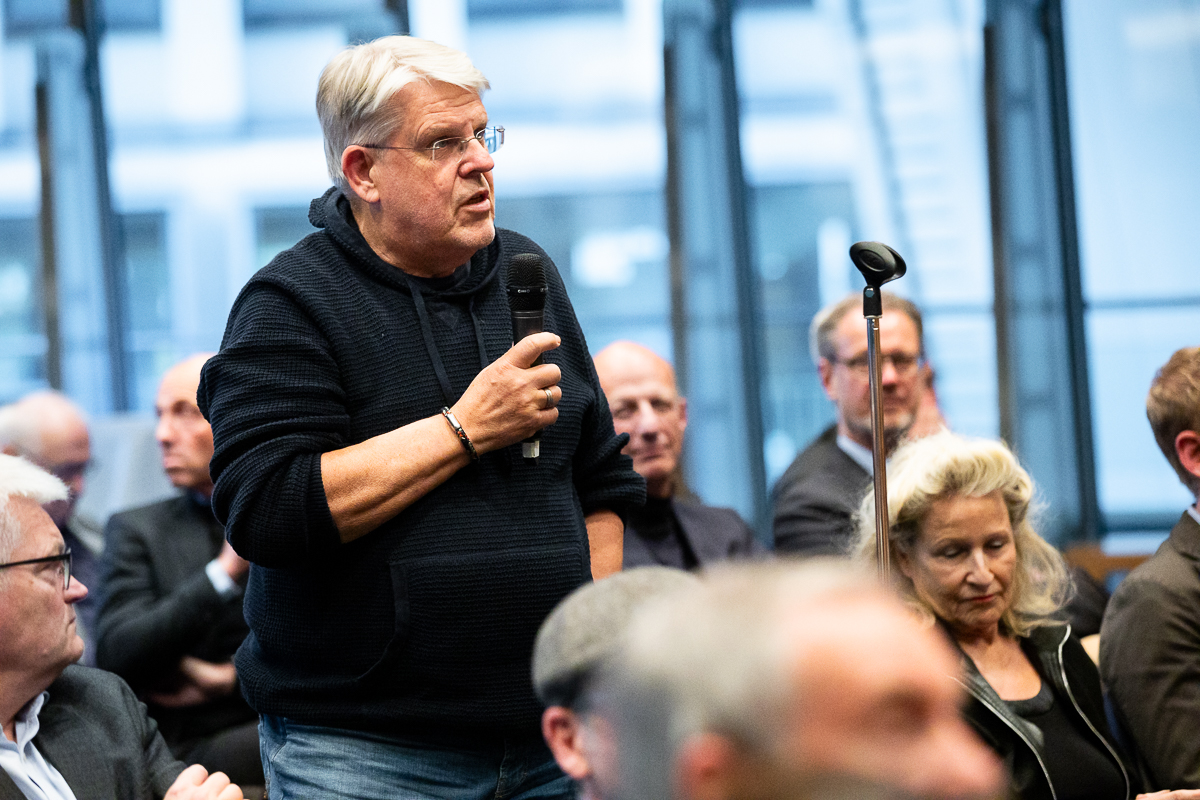
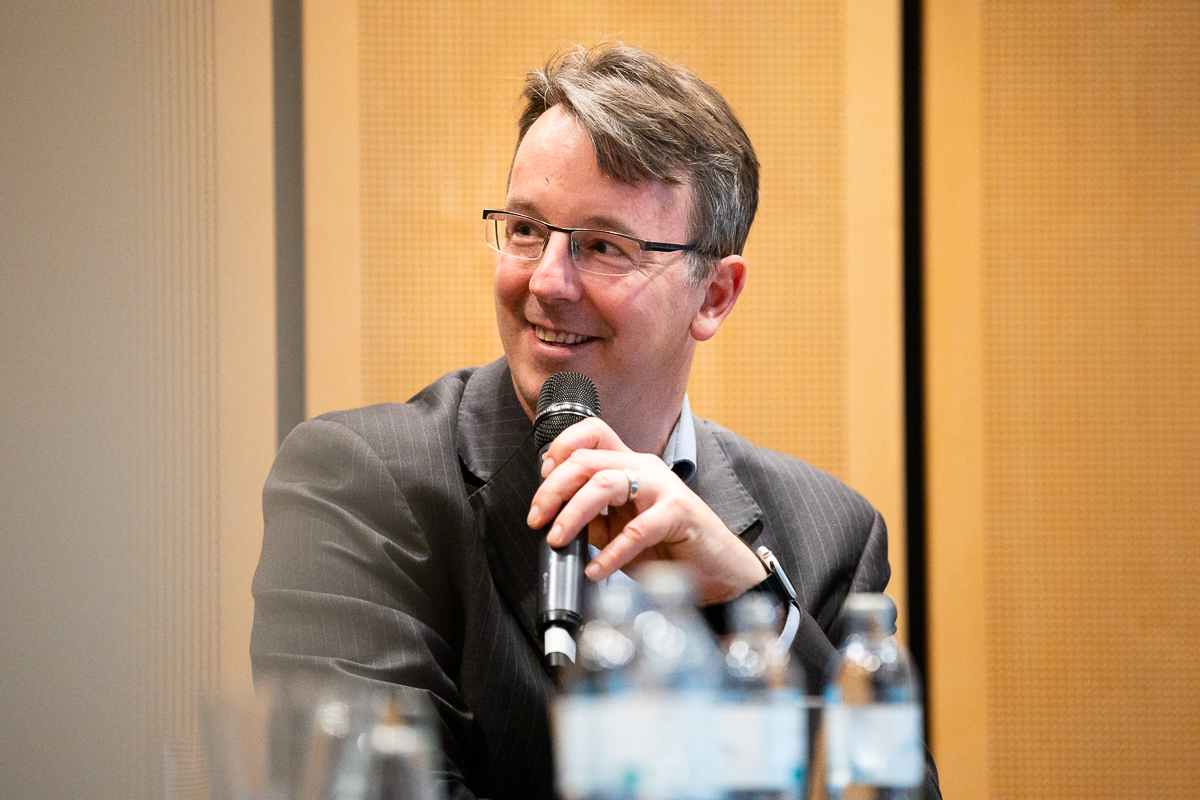
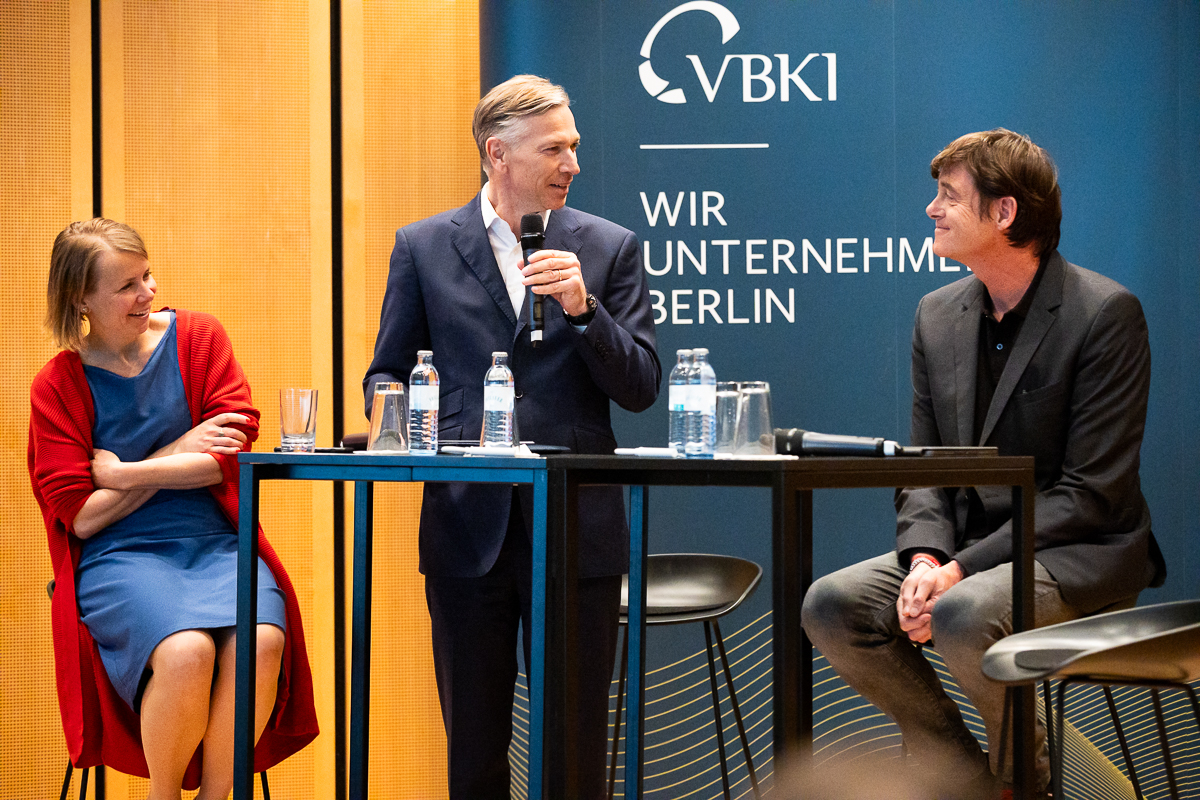
With regard to the topic of "mobility", Peter Schink called for a cross-state transport concept, while Lorenz Maroldt said that the future of mobility - in view of the divided responsibilities between the Senate and the districts - depends closely on the administrative reform coming to fruition. It is clear that an organizing hand is needed. Helene Bubrowski recalled the speed with which another European metropolis - Paris - had changed its transport concept. "We get bogged down too often."
And what about the prospects for administrative modernization? Peter Schink is pessimistic. "I suspect that there are few people who are really interested in a substantial reform." In essence, the reform reflects a battle for influence between the senate level and the districts. Nevertheless, from Maroldt's point of view, there is no way around a reform, because "otherwise we will go to our knees". Unfortunately, no one can be held responsible for the deficits in the administration, which is a major reason why "we have been discussing reform for more than 20 years without anything happening".
And what makes you optimistic? For Helene Bubrowski, part of the answer to this question from the audience lies in broadening one's perspective: "If you talk to people from other parts of the world, Berlin still functions well - despite all the prophecies of doom." Peter Schink is encouraged by the way in which the anti-Semitism debate was conducted in Berlin following the terrorist attacks by Hamas in Israel. "There are many committed people in our city who are acting with great seriousness," says the Morgenpost boss. As a society as a whole, we are capable of taking action. Lorenz Maroldt also took up the cudgels for people who take on political responsibility in Berlin: "In politics, I keep getting to know people who really mean business."
Impressions
To the picture gallery: Please click here>
You might also be interested in
More impact, less bureaucracy
VBKI discussion paper: Three proposals for a sustainable university landscape
"We don't have a knowledge problem, we have an implementation problem"
Business Breakfast: Vonovia CEO Rolf Buch as a guest at the VBKI
Investment or withdrawal
CEOs for Berlin visit Siemens



